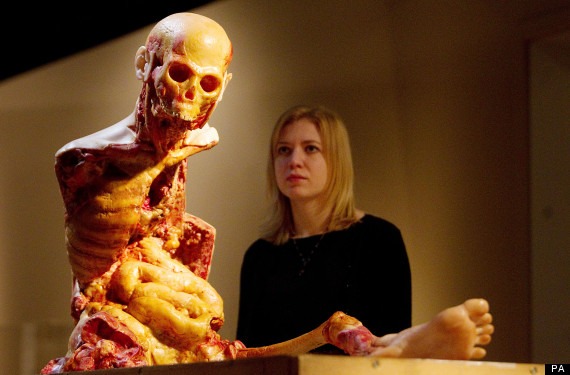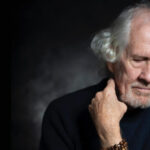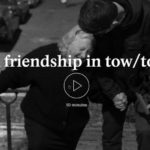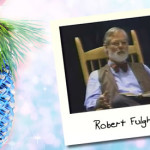
The Atlantic Magazine ran a short article in April of 2013 on who lives longest based on who earned an obit in the NYT.
It reported on a 2001 PubMed study that found Academy Award stars live longer than less famous actors. Not surprisingly lung cancer and cause due to drug use and risky behavior were prevalent in the entertainment industry. Beyond that,
Researchers in Sydney looked at the age and cause of death reported in 1,000 consecutive New York Times obituaries published from 2009 to 2011. “Success,” by their measure, was defined as having lived a life that merited an obit in the paper of record. Some of these people were considered to be both successful and famous, like those in performance and sports, and, to a lesser degree, writers and composers, while others — categorized as business/military/political or professional/academic/religious — were mostly just successful.
RESULTS: People who were both successful and famous died earliest. The average age at death of performers and athletes, 77.2 years. (…) Businesspeople and their ilk lived longest. In fact, their average age at death, 83 years, was higher than the national average for 2010 of 78.7 years.
Philanthropists, academics, and doctors were more likely than others to die of “old age,” a diagnosis that occurred least often for performers, athletes, and creatives.
Incidentally, the gender distribution during this time period was 813 obits for men, 186 for women. (of course, but that’s for another blog post).
IMPLICATIONS: (…) (I)t would seem that fame isn’t necessarily associated with more health risks, but instead that people who are successful but not famous may be predisposed to being healthier.
All very interesting, isn’t it? It tells us how many years’ people have lived, but it doesn’t tell us how satisfying their lives were—even if the obits regaled hundreds of activities and organizations in which the persons participated.
So I asked myself: since my goal is to live long, would I ever agree to live short if more alive? Or do I already have the option to live alive when living long, but I just miss the subtlety involved?
And what is “more alive,” anyway? I know for sure it’s not about being busy. Alain de Botton asks us to think about this in the excerpt from The Book of Life that follows.
On Learning to Live Deeply Rather than Broadly
From the Book of Life Chapter 2 Work/Meaning
History is filled with stories of extraordinary figures who died tragically young in their 20’s and 30’s (…). But when we zero in on the oft-remarked detail that they seem to have achieved more in a few brief years than many of us achieve in eight decades, a new thought opens up. The very discrepancy between us and them suggests that we are perhaps being overly blunt when we choose to measure lifespan in a unitary way without reference to what someone happens to be doing with the years that they have been allotted. A year in the hands of a person who is open to experience, who creates, feels, loves, connects and delights is a lot ‘denser’ and in that way therefore longer than exactly the same amount of time in the hands of a less responsive and less inwardly alive or giving human being. We might go so far as to propose that a year in the life of the former should be given a different numerical weight than one in the latter – that a year in the life of the Romantic poet Gericault (The Death of Medusa) or Emily Bronte should not be counted in exactly the same way as a year for someone else, and might more rightly be doubled or more. We know in travel that two days in one city can feel like a year in another less inspired place – and the same is true in life more broadly; not everyone who is living is equally alive. Just as we calculate dog years to take their size and anatomy into account, so we might recalibrate lifespan according to the depths of meaning one has plumbed – not the gross years one has breathed. Adjusted for the intensity of experience, we might hence judge that – whatever basic chronology might claim – Mozart really died at around 120. (…)
All this matters immensely because our sadness at the idea of death frequently reduces itself to the thought that our lives have not been, as we put it, ‘long enough.’ But we shouldn’t measure a life by the hours it contains; rather by the wisdom, love and intelligence with which these hours have been spent – by which score, many of the people most legendary for having had brief lives really had nothing of the sort.
It doesn’t matter in this if we have no genius-level capacities at poetry or painting; it still remains for us to choose how purposefully and beautifully and therefore ultimately how ‘long’ we can live. We should not stay transfixed, or devastated, by the simple number of days liable to be ahead of us, we should concentrate on how to sprinkle them with emotional stardust.
In the novel The Leopard by Giuseppe Tomasi di Lampedusa, there’s a powerful death scene. The elderly Fabrizio Corbera, Prince of Salina, who is the psychological centre of the book, is about to die. He’s lying in bed with his weeping relatives around him. And he asks himself the terrifying, fundamental question: how much of my life have I actually lived? The answer is deeply disturbing: he can pick out a few months here and there – two weeks before his wedding, two weeks after; a few days around the birth of his first son; certain hours he spent in his observatory (he is a distinguished astronomer); a few hours of flirtation here and there; times when he was reading aloud to his children; conversations with one or two friends, particularly his nephew. But not much in total: perhaps a year or two out of seventy. If we measure the reality of our lives by the quantity of time we have passed in a state of genuine happiness the answer is going to be distressing. (It might be right to be) more focused on how well we have lived rather than the absolute number of days we have existed.
We are not, in the end, ever really very short of time. What we’re truly short of is affection, open-heartedness, kindness and tolerance. We’re short of the ability to create peak experiences in which we are sufficiently unfrightened, approachable, and responsive. We may have a lot to mourn, but it isn’t necessarily the imminence of death, it may more be the difficulty of living with courage and sensitivity. The challenge of our lives is to learn to live deeply rather than broadly.
The artist John Sweeney (2001) depicts a ravaged corpse in a gallery; its stomach hangs out, its ribcage appears to have been hacked at like a butcher’s carcass. But the real horror and rebuke lies in the title of the work: “Are you still mad at me?” The tone is calculatedly banal next to the ghoulish fate that has befallen what we take to be someone’s erstwhile partner. The poor corpse before us might only a little while ago have spent their time in an apartment, squabbling with their loved one, asserting their point of view, not forgiving, not being able to move on – sure they were right but not being able to see things through another’s eyes. And now their pettiness is being judged from the perspective of death. Are we really to spend the only lives we will ever know in yet another argument about who disrespected whom, when outside the narrow casern of our embittered relationship, so many opportunities for joy and wonder remain? Are we going to walk towards death without properly filling our lungs with the beauty of existence? We aren’t here being warned that we’re going to die, that is eminently survivable as a thought, we are being warned of a far more appalling but less often mentioned danger: that we might die in a sulk about not very much.

We can’t command how long we live, but it is very much in our remit to try to adjust how colourfully and how deeply we will live. We may have to rethink what a ‘premature’ death actually is. It isn’t necessarily what happens to a young artist gone by thirty. He or she may – in a fairer assessment – have been a nonagenarian or more. It is we who might right now, even if we are well passed middle age, be heading for a regrettably ‘early’ death. Our goal shouldn’t be to lay claim to yet more decades we won’t necessarily know how to spend, it is to ensure that we can do everything in the days ahead to learn the art of not dying ‘tragically young.’






























